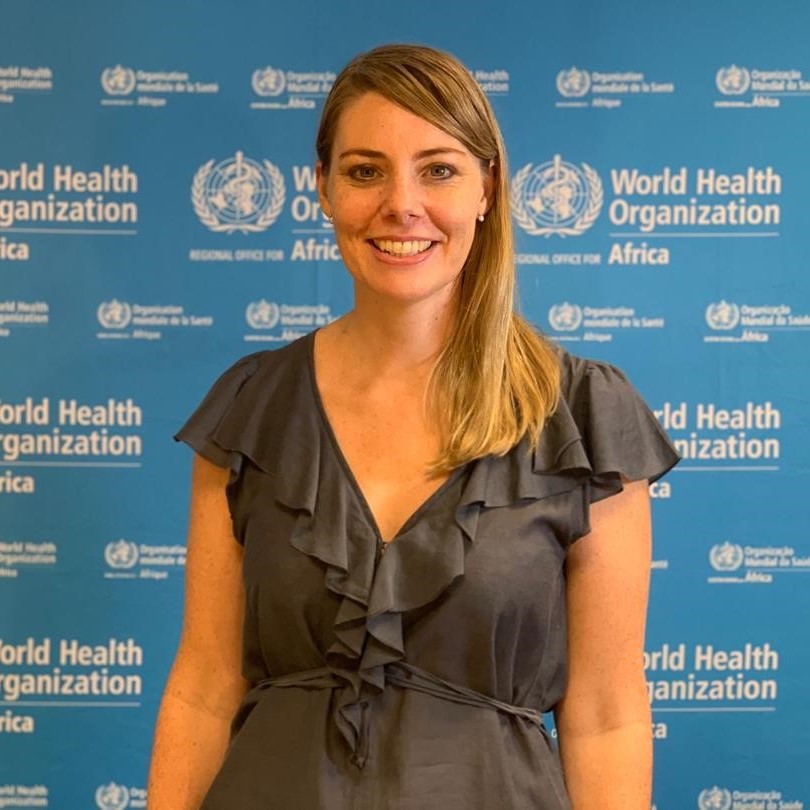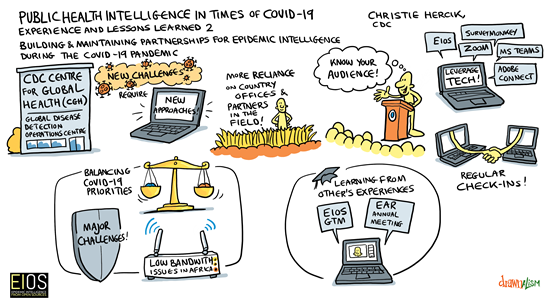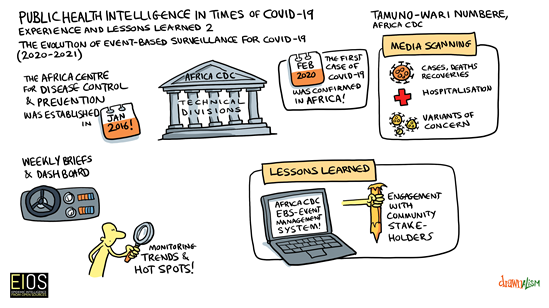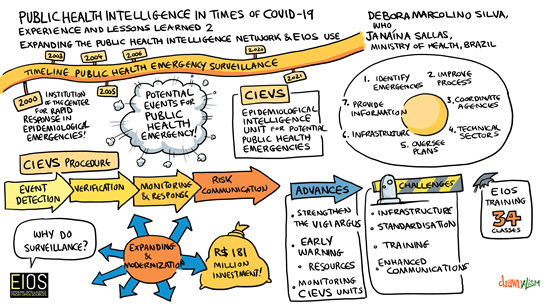
Public Health Intelligence in times of COVID-19: Experiences and Lessons Learned 2
Monday, 6 December 2021
Moderator

Esther Hamblion
Epidemiologist, World Health Organization (WHO)
Dr Esther Hamblion is an epidemiologist in the World Health Organisation’s Health Emergencies Programme and is currently acting unit head of the Public Health Intelligence unit at WHO HQ in Geneva, Switzerland. Previously Esther was at the WHO’s Regional Office for Africa and prior to that based in Liberia where she led the WHO epidemiology team in country during the Ebola response and subsequent recovery and health system strengthening phases. Esther previously worked at Public Health England in the field epidemiology services. She has a doctorate in epidemiology from University College London and an MSc in epidemiology from Imperial College London.
Speakers

Christie Hercik
Epidemiologist, Centers for Disease Control and Prevention (CDC)

Tamuno-Wari Numbere
Event-based Surveillance Analyst, Africa Centres for Disease Control and Prevention (ACDC)

Debora Marcolino Silva
Consultant, World Health Organization (WHO)

Janaína Sallas
National Coordinator of Public Health Emergencies, Brazil Ministry of Health

Kazim Beebeejaun
Consultant, World Health Organization Regional Office for Europe (WHO EURO)
![]()
Andrea Capobianco Dondona
Global Early Warning System Coordinator, Food and Agriculture Organization (FAO)
I am the Global Early Warning System Coordinator in FAO. I lead the activities on disease monitoring, analysis and forecasting to ensure early warning and early action for transboundary disease threats. Before joining FAO, I worked for 10 years as a wildlife veterinarian and epidemiologist for the Italian Reference Centre for Exotic Animal Diseases at IZSAM in Teramo, conducting both field and laboratory investigations on emerging and transboundary animal diseases, developing emergency and surveillance plans to control infectious diseases at the wildlife/livestock/human interface in Africa. I was also responsible for the designing, development and management of animal health information systems for both national and regional institutions and I have experience in applying artificial intelligence to the animal production and veterinary field. Over the last two years I also worked for the World Bank in Kyrgyzstan on capacity building for the veterinary services and private veterinarians and as Coordinating Expert for EIP-AGRI in Brussels.






